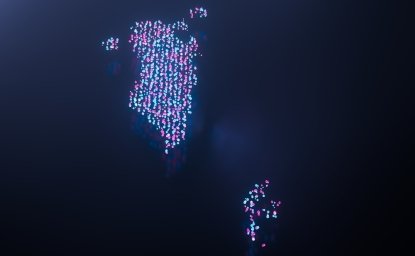
A blog of the Science and Technology Innovation Program
The annual ACM Conference on Computer Supported Cooperative Work and Social Computing (CSCW)—held this year from Febuary 25th to March 1st in Portland, Oregon—is a venue for presenting research on the technical, social, material, and theoretical challenges of designing technology to support collaborative work and life activities. Research on crowdsourcing and citizen science had a big presence at CSCW this year, with one workshop and at least five papers exploring this paradigm.
The conference kicked off with a workshop on "The Science of Citizen Science: Theories, Methodologies, and Platforms." The primary goal of this workshop—organized by Edith Law, Jennifer Shirk, Jennifer Preece, Andrea Wiggins, Greg Newman, Alex Williams, and Jonathan Brier—was to define and set the agenda for future research on citizen science within the realm of Human-Computer Interaction, as explored by communities like CHI and CSCW. A forthcoming paper will share the results of this Workshop with the larger community.
During a session on ICT4D, researchers from the UCL’s Extreme Citizen Science (ExCiteS) group, led by Michalis Vitos, presented Supporting Collaboration with Non-Literate Forest Communities in the Congo Basin. This paper explores the evolution of Sapelli, a generalized, smartphone-based data collection platform initially developed for non-literate forest communities in the Congo Basin. Fieldwork in the Congo led to prototyping Tap&Map, a tangible expansion of Sapelli that allows users to contribute to participatory mapping by tapping their smartphone to cards equipped with Near Field Communication (NFC) tags. This paper is a must-read for anyone interested in exploring citizen science in international development or understanding the use of innovative citizen science interfaces.
Four papers were shared during a session on citizen science chaired by Alyson Young. Jamie Snyder presented on a Vernacular Visualization Practices in a Citizen Science Project, namely COASST. Her fascinating research explored what may happen when extreme events—in this case, a wreck event where thousands of dead Cassin’s Auklets began washing up on the Pacific Coast—challenge existing data collection and visualization practices. Snyder’s research touches on topics including how volunteers learn to “see” like scientists, and how crisis influences communication strategies between CS projects and other stakeholders.
Snyder was followed by an ethnography on Soylent Diet Self-Experimentation: Design Challenges in Extreme Citizen Science Projects This paper, led by Markéta Dolejšová, characterized self-experimentation through personal diet optimization as a form of extreme citizen science. Dolejšová’s research explores the interplay between individual efforts, community support, and knowledge sharing in online communities. He research also raises common questions regarding the role of concepts like “bias” and “reproducibility” in both citizen science and the larger research enterprise, including in fields like psychology.
Concerns about privacy and sensitivity in biomedical research raised by Dolejšová’s paper paved the way for a presentation by Anne Bowser on Accounting for Privacy in Citizen Science: Ethical Research in a Context of Openness. This study used Helen Nissenbaum’s theory of Contextual Integrity to evaluate whether information sharing in location-based citizen science projects is contextually appropriate, e.g. does not unreasonably threaten the privacy of volunteers (short answer: yes, it is contextually appropriate, because the significant benefits of participation outweigh potential risks). This paper also discusses larger implications for advancing ethics in participatory research.
The session closed with a paper by Neal Reeves and colleagues, From Crowd to Community: A Survey of Online Community Features in Citizen Science Projects. Noting that the field still lacks shared, concrete guidelines for designing effective citizen science platforms, Reeves surveyed 48 citizen science projects (approached via 152 scholarly publications) to identify common features and functionality. Recommendations include designing to promote task visibility, or seeing and selecting tasks for completion; goals, or making targets visible; feedback on submissions; and, the use of tangible and intangible rewards. Reeves’ research also calls into question the relationship between specific tasks and larger scientific activities.
Full text links to the Vitos, Dolejšová, Bowser, and Reeves papers are offered above; readers interested in the additional two papers should contact the authors directly. Happy reading!
Author


Science and Technology Innovation Program
The Science and Technology Innovation Program (STIP) serves as the bridge between technologists, policymakers, industry, and global stakeholders. Read more





